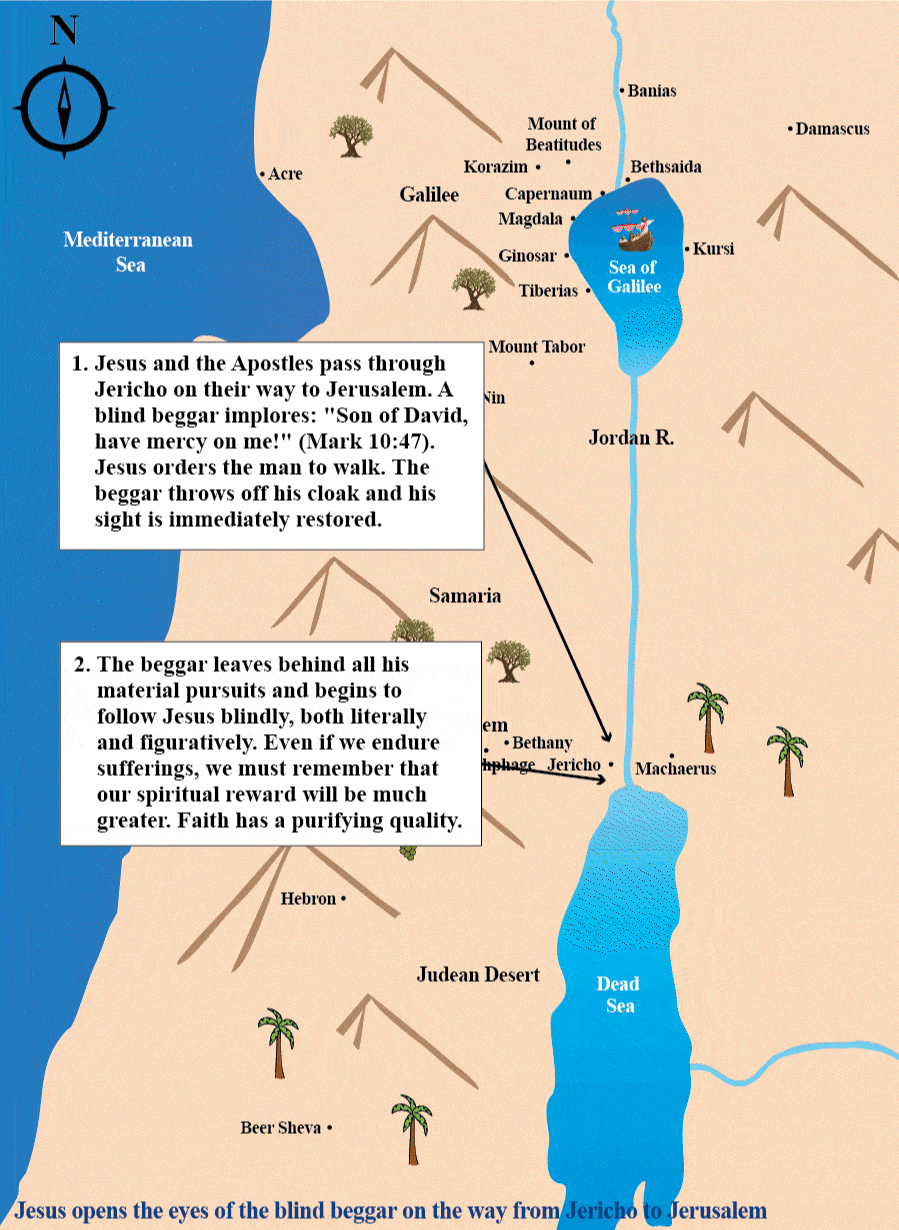
“46And they came to Jericho: and as he went out of Jericho with his disciples and a great number of people, blind Bartimaeus, the son of Timaeus, sat by the highway side begging. 47And when he heard that it was Jesus of Nazareth, he began to cry out, and say, Jesus, thou son of David, have mercy on me. 48And many charged him that he should hold his peace: but he cried the more a great deal, Thou son of David, have mercy on me. 49And Jesus stood still, and commanded him to be called. And they call the blind man, saying unto him, Be of good comfort, rise; he calleth thee. 50And he, casting away his garment, rose, and came to Jesus. 51And Jesus answered and said unto him, What wilt thou that I should do unto thee? The blind man said unto him, Lord, that I might receive my sight. 52And Jesus said unto him, Go thy way; thy faith hath made thee whole. And immediately he received his sight, and followed Jesus in the way.” (Mark 10:46-52)
On their way to Jerusalem, Jesus and the Apostles pass through Jericho, where they encounter a blind beggar, by the name of Bartimaeus, who begs Jesus to restore his sight. Jesus orders the man to walk and Bartimaeus’ sight is immediately restored. This miracle symbolizes that we must sometimes follow our faith blindly, without knowing where it will take us. We should always listen to our hearts, even if it seems unreasonable or fraught with pain and suffering, as in fact happened to the Apostles later in Jerusalem. Although he cannot see him, Bartimaeus calls Jesus “son of David”. He knows that Jesus is the Messiah. His faith is pure and blind. Bartimaeus throws off his cloak and follows Jesus. In other words, he gives up on his material riches for the sake of a spiritual trove. The blind man’s unyielding faith purifies his suffering body.

Purity is achieved by restricting negative impulses and eliminating evil thoughts and deeds.

